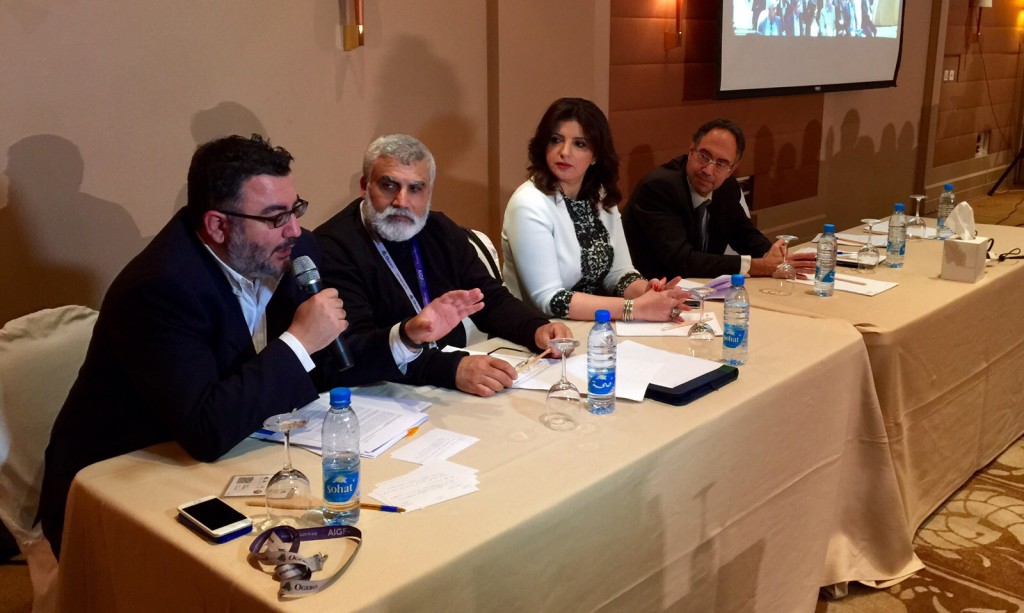Feature image: Speakers of the Workshop ” Net Neutrality”.
Net neutrality (also known as net equality) means that internet data should be easily accessed without discrimination, financial charges or blocking the source, therefore it should promote free speech. Net neutrality involves many stakeholders, such as: The state, regulators, users, parents, access providers, global infrastructure, and of course content producer.
“Telecom operators promote net neutrality, which increases their revenues” as the chief corporate management officer at Touch Roula Abi Daher explained. Abi Daher stated that the operators face many challenges including the “loss of revenues to over-the-top-content OTT players”.
During his speech the CEO and the chairman of Sodetel Patrick Farajian said: “Operators Want to discriminate traffic and extract money from the OTT players”. Farajian considered that operators should not be allowed to take money from OTT. Besides, changing with net neutrality rules can cause harm to the internet ecosystem.
The Facebook Company has a different position on this matter, taking into consideration freedom of speech, the public policy director in MENA region Ashraf Zeytoun considers that “services should not be blocked since Facebook has a role to play in particular giving people a voice, the power to connect and share ideas”.
By reviewing the Net neutrality literature, we distinguish different points of views: Those who are highly supportive and those who are against. The social activists oppose the security officers in their demand to increase internet control and surveillance. Professor Antoine Melki form Balamand University said that “Neutrality should be linked to the development and creativity as telecom is a tool not a cause. Melki asked for an “innovative business model” on the internet.
The Chief Executive Officer and chairman of OGERO, Abdel Menhem Youssef presented the governmental viewpoint, he said “Facebook for example, promotes different advertisements to different users, therefore we should have neutrality of the network and neutrality of the algorithm”.
Youssef rational was supported by the former Tunisian minister of information and communication technologies Monji Marzouk who claimed “that the exact definition for the net neutrality has not been fully developed, yet”, he added that zero rating contradicts with the concept of open and neutral internet. Marzouk added that USA and Europe use the concept of open internet instead of internet neutrality to highlight the difference. The internet services according to Marzouk are divided into the following:
-
- Access
-
- Electronic Communication Service
-
- Information Society Service
- Traffic Management
The demand of neutrality should not be in technical management because we could handle a 2% of loss in voice message quality but we could not accept it in economic study. The term “neutrality” is still open to multiple interpretation, and the speakers prefer to use the term open internet instead.
Report: Kayssar Yaccoub – Ralph Gerges
Edit: Rouba El Helou


